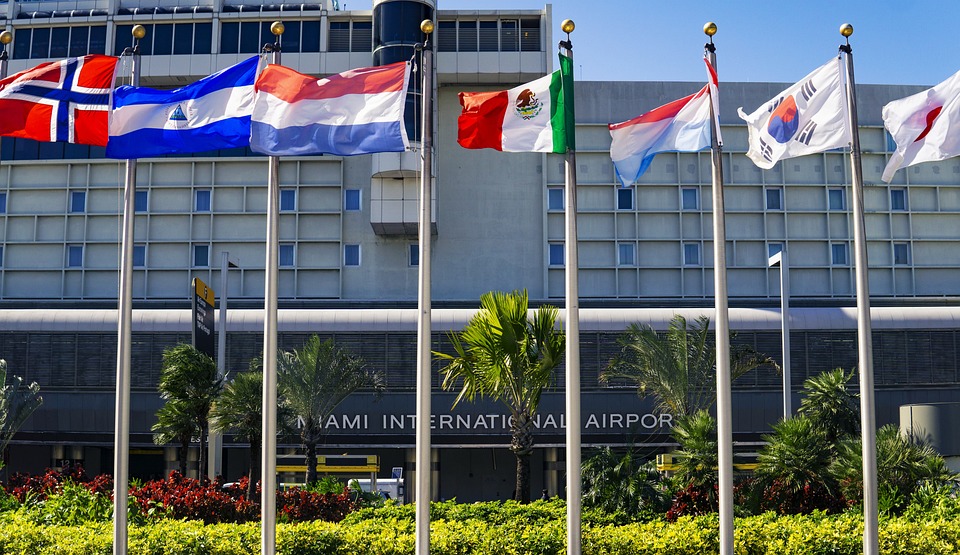U.S. Visa Abroad: Applying for a U.S. Visa from Another Country

There are situations where, for various reasons, it is IMPOSSIBLE to obtain a visa in one’s home country, and in such cases, applying for a U.S. visa abroad becomes the last chance to enter the United States. Given today’s global situation, various restrictions, and similar circumstances, we must adapt to the opportunities available, rather than acting on personal preferences. The United States understands this and accommodates applicants by allowing them to apply from other countries.
What are the specifics of obtaining a U.S. visa abroad?
If we compare applying for a visa 10-15 years ago to now, it is a completely different experience. All procedures have long been standardized, although each country has its own additional rules depending on the situation (such as the presence of terrorist organizations, civil unrest, etc.). Still, the basic process for applying for a visa remains largely the same across countries.
Regardless of how much we try to cover all essential points in this article, we still recommend visiting the local website of the U.S. visa consulate in the country you plan to apply from, as submission and visitation rules can change at any moment. Moreover, the geopolitical situation can change rapidly, and once warm and friendly relations can turn cautious if incidents such as terrorist attacks occur.
Another important factor is that when applying for a U.S. visa abroad, “non-residents” are often placed in a separate queue from country residents, and this queue depends on the internal workload of the consulate. Therefore, the visa application process can take months of waiting. Additionally, occasional “windows” may open up, allowing you to secure an appointment. These slots appear irregularly when someone cancels their interview, so you must monitor for them constantly. Keep in mind that people from other countries whose visa centers have closed may also compete for these slots, leading to a mix of applicants from various nationalities and language groups.
Another critical point when applying for a U.S. visa abroad is that there is a 99.9% chance that visa officers won’t speak your language, meaning you’ll need to communicate exclusively in English unless you speak the language of the country you’re applying from.
Steps to applying for a U.S. visa abroad
Essentially, the process of obtaining a U.S. visa abroad is no different from applying in your home country, aside from a few specific points. Here’s how to proceed (considering a tourist visa):
- Register an account on the USCIS website, where your application will be processed.
- Complete the DS-160 form.
- Pay the consular fee for processing your application.
- Book the nearest available appointment in the registration calendar. Keep in mind that once the consulate knows you are a non-resident, they may reschedule your appointment for the separate queue.
- Prepare for the interview (collect documents that demonstrate non-immigrant intent).
- Visit the visa center on the appointed date and time.
- Receive approval or denial.
It’s also important to remember that if you’re applying for a visa in a neighboring country, it’s recommended to stay there for a few more days to wait for your passport. Otherwise, your passport will be sent to the address you specify in another country, where you can receive it via courier. The process is the same as receiving a passport with a visa in your home country, except the waiting time may increase.

Frequently Asked Questions about Applying for a U.S. Visa
Can I bring a translator with me?
Applying for a U.S. visa is primarily an introduction between the visa officer and the prospective traveler. They are not interested in third-party interpretations of the applicant’s words and prefer to hear answers directly from the applicant. Additionally, during the interview, visa officers will closely observe facial expressions and behavior. You can bring a translator, but it is not recommended.
I don’t have time to wait for a visa in another country. Can I receive my visa at home?
Certainly, your visa will be delivered via a special courier service, as if you were applying in your home country. However, this is only possible if there is a consulate in your country that is actively working and able to provide this service. Otherwise, it’s better to stay in the country where you are applying for the visa and collect it in person.
Can I apply for a child’s visa abroad without visiting the consulate?
This is only possible if you are applying in your country of citizenship. Unfortunately, if you are applying for a child’s visa abroad, even if the child is under one year old, you will still need to visit the consulate with them. However, this may depend on the internal rules of the consulate. It’s best to check directly with the consulate.
Which country is the best to choose for applying for a visa?
You can choose any country you wish to travel to. Just keep in mind that the workload of visa officers varies by country, so choose carefully.
Can I reschedule my interview if I’m applying in another country?
Yes, of course, you can reschedule your interview. Just keep in mind that after the first rescheduling, it’s not guaranteed that you will be allowed to do so again. Choose your date carefully.
Table of Contents


